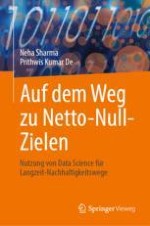2024 | OriginalPaper | Chapter
8. Anwendung von maschinellem Lernen im Klimawandel auf den Verkehrssektor – Literaturüberblick und Datenvorbereitung
Authors : Neha Sharma, Prithwis Kumar De
Published in: Auf dem Weg zu Netto-Null-Zielen
Publisher: Springer Nature Singapore
Activate our intelligent search to find suitable subject content or patents.
Select sections of text to find matching patents with Artificial Intelligence. powered by
Select sections of text to find additional relevant content using AI-assisted search. powered by
